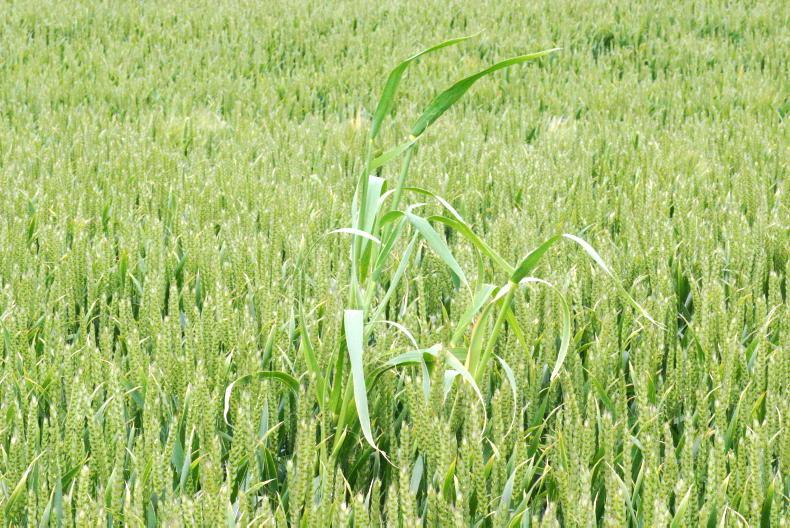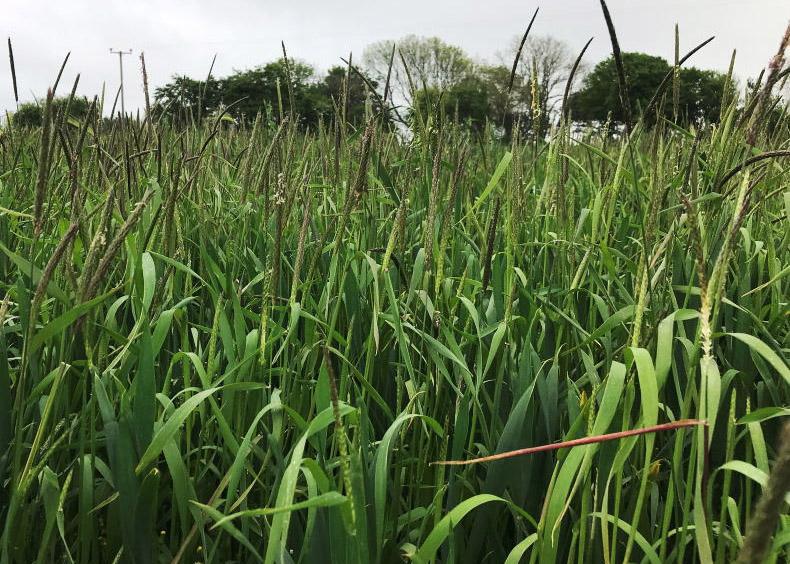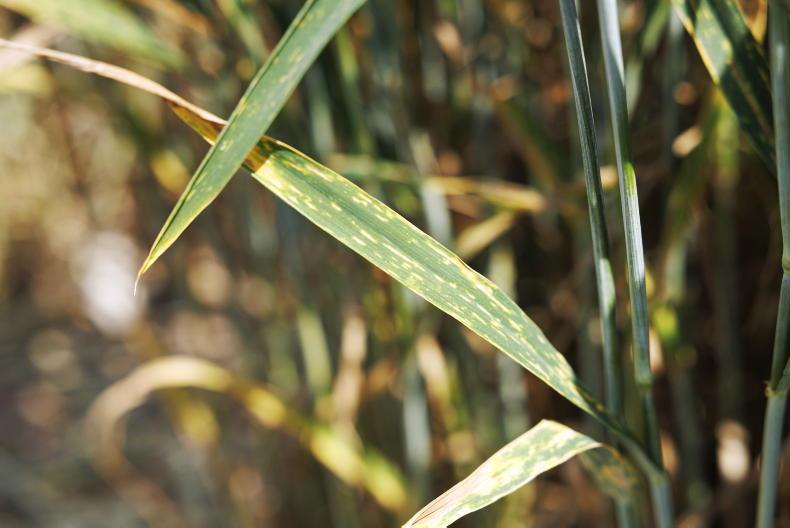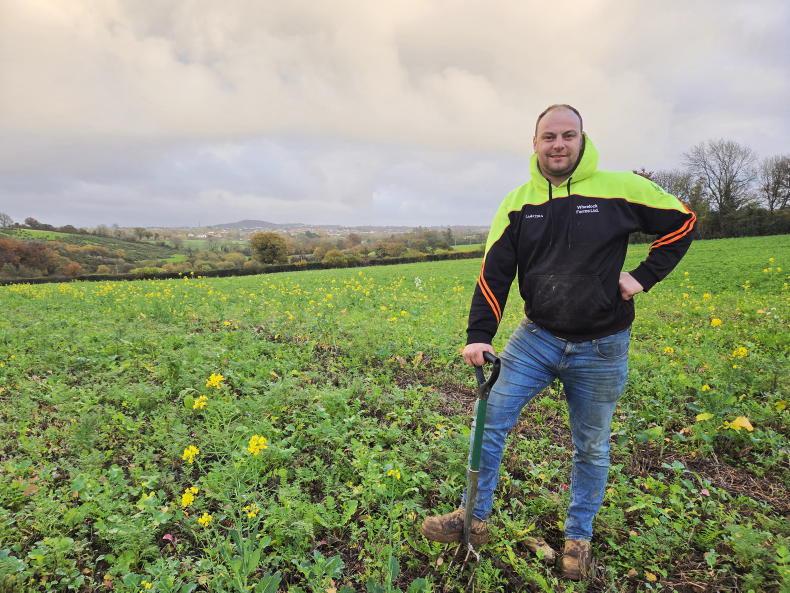The Irish recommended lists for a range of crops have served farmers well for decades.
The system employed by the Department of Agriculture evaluates varieties based on their performance across different sites over an average of three years.
This evaluation looks at a range of characteristics such as straw strength, grain yield, disease resistance, grain quality, etc. Recommended varieties are generally quite robust across rotation, geography and yield consistency.
While the recommended list system can generally supply adequate certified seed quantities for a range of varieties, some growers also like to dip into other varieties that are not recommended in Ireland.
These will generally be varieties that are being heavily promoted for production in Britain which look to have potential and may be grown here on a look-see basis.
Other varieties are being grown either because of their earliness of ripening or their perceived suitability in specific production slots.
There were a family of potentially good new varieties (progeny of Cougar) being evaluated in recent years but most of these have now been withdrawn because they had a common genetic resistance for septoria which has already broken down.
Varieties and seed availability
The varieties that are currently recommended for use in Ireland include Costello, Graham, JB Diego, KWS Conros, SY Insitor, Torp and Spearhead.
Of these Graham has 49% of certified seed availability for 2022 planting while KWS Dawsum has 30% – that is almost 80% from just two varieties.
As there is no seed multiplication of KWS Conros or Costello, it is likely that they will not be on the 2023 recommended list.
While not yet recommended, Dawsum is a candidate for recommendation on the 2023 recommended list. Either way, there will be a significant quantity of KWS Dawsum certified seed available for planting in autumn 2022.
Dawsum is seen as a replacement for Costello with slightly better septoria resistance and very good yellow rust resistance. It is also said to tiller better than Costello, has a high Hagberg Falling Number (low risk of sprouting) and excellent specific weight.
Some other varieties that are not recommended also have a small certified seed availability this autumn. These include LG Skyscraper and Champion.
Skyscraper is a big variety in Britain (not new) and some growers in the northeast are interested in growing it as a second wheat. It was not considered for recommendation here as it is regarded as susceptible to septoria. It is also quite tall and not that strong on standing.
Champion is a new winter wheat variety that is working its way through the Irish evaluation system. It has been performing very well in UK trials and it is very good in terms of disease resistance, especially on septoria.

Champion is only beginning its journey through the recommended list process but there will be a small amount of certified seed available this autumn.
One concern though would be its hectolitre weight, which tends to be two to three points lower than varieties such as Graham and JB Diego.
Targeted Astronomer production
LG astronomer is another variety that will be in the market for 2022 planting. This is one of the Cougar progeny which was bred specifically for suitability for distilling. For this reason, there will be a targeted amount grown for further evaluation for this use.
Tests with the variety indicate that it can have very high alcohol yields and so commercial production is set to continue for further evaluation.
However, the variety is most likely to be grown in areas that normally have low to moderate septoria pressure, as it could succumb badly to septoria in a high-pressure region.
A number of other varieties are being grown by farmers who consider them particularly suited to specific production situations such as second wheats or early planting. Previously recommended options such as Grafton and Garrus are still grown by some growers to target these slots.
KWS Extase was also of interest here because of its very high septoria resistance rating on the UK recommended list.
An early maturing French-bred variety, it was tested here a few years ago but came up short on yield.
Also, its resistance to septoria was found to be considerably lower than its rating across the water. It also showed susceptibility to mildew and sprouting.
There is also some interest in KWS Parkin due to its short strong straw and very early maturity. It has good yellow rust resistance. Some see it as a replacement for Grafton, but it may not be as good on yield.
Santiago has been grown here in the past. However, it was found to be susceptible to yellow rust and poor on septoria when it was tested in Ireland and so it was discontinued early on.
The variety Gleam has also been of interest to Irish growers because of its prominence in Britain. It was evaluated here back in 2016 and was found to be susceptible to septoria as well as only being a five for yellow rust.
There was quite a bit of interest in RGT Saki up to last year, but it was discontinued because of its weakness against septoria as it is one of the Cougar progeny.
UK-bred varieties have always been important for Irish growers and they have frequently been the dominant highest yielding varieties here.
Because of this, many UK-bred varieties are considered to be potentially suitable for Irish conditions and so of particular interest to growers who want to try a variety that is not on the Irish recommended list.
Growers who grow such varieties traditionally brought seed in from Britain. However, this has become much more difficult post-Brexit and so the practice may cease.
The seed trade here in Ireland operates a zero-tolerance policy and so is now very reluctant to import seed from the UK, even certified seed
The Brexit issue has made it quite difficult for seed companies to source seed from Britain and its move to gene-editing technology may prevent variety importation in the future.
It is also fair to say that seed merchants and growers alike have become very wary of seed imports from the UK due to the high risk of blackgrass contamination.
The seed trade here in Ireland operates a zero-tolerance policy and so is now very reluctant to import seed from the UK, even certified seed.
While an occasional UK variety has achieved grower acceptance here, the safest variety choices are still made from our recommended list using Irish-produced seed.
There is likely to be a wide range of winter wheat variety options for planting this autumn but 80% of the certified seed availability will be for just two varieties. Growers should always experiment with a little of a new variety in a good field to assess its potential for future years.The option to bring in UK varieties that are not recommended here is likely to be hampered by Brexit.
The Irish recommended lists for a range of crops have served farmers well for decades.
The system employed by the Department of Agriculture evaluates varieties based on their performance across different sites over an average of three years.
This evaluation looks at a range of characteristics such as straw strength, grain yield, disease resistance, grain quality, etc. Recommended varieties are generally quite robust across rotation, geography and yield consistency.
While the recommended list system can generally supply adequate certified seed quantities for a range of varieties, some growers also like to dip into other varieties that are not recommended in Ireland.
These will generally be varieties that are being heavily promoted for production in Britain which look to have potential and may be grown here on a look-see basis.
Other varieties are being grown either because of their earliness of ripening or their perceived suitability in specific production slots.
There were a family of potentially good new varieties (progeny of Cougar) being evaluated in recent years but most of these have now been withdrawn because they had a common genetic resistance for septoria which has already broken down.
Varieties and seed availability
The varieties that are currently recommended for use in Ireland include Costello, Graham, JB Diego, KWS Conros, SY Insitor, Torp and Spearhead.
Of these Graham has 49% of certified seed availability for 2022 planting while KWS Dawsum has 30% – that is almost 80% from just two varieties.
As there is no seed multiplication of KWS Conros or Costello, it is likely that they will not be on the 2023 recommended list.
While not yet recommended, Dawsum is a candidate for recommendation on the 2023 recommended list. Either way, there will be a significant quantity of KWS Dawsum certified seed available for planting in autumn 2022.
Dawsum is seen as a replacement for Costello with slightly better septoria resistance and very good yellow rust resistance. It is also said to tiller better than Costello, has a high Hagberg Falling Number (low risk of sprouting) and excellent specific weight.
Some other varieties that are not recommended also have a small certified seed availability this autumn. These include LG Skyscraper and Champion.
Skyscraper is a big variety in Britain (not new) and some growers in the northeast are interested in growing it as a second wheat. It was not considered for recommendation here as it is regarded as susceptible to septoria. It is also quite tall and not that strong on standing.
Champion is a new winter wheat variety that is working its way through the Irish evaluation system. It has been performing very well in UK trials and it is very good in terms of disease resistance, especially on septoria.

Champion is only beginning its journey through the recommended list process but there will be a small amount of certified seed available this autumn.
One concern though would be its hectolitre weight, which tends to be two to three points lower than varieties such as Graham and JB Diego.
Targeted Astronomer production
LG astronomer is another variety that will be in the market for 2022 planting. This is one of the Cougar progeny which was bred specifically for suitability for distilling. For this reason, there will be a targeted amount grown for further evaluation for this use.
Tests with the variety indicate that it can have very high alcohol yields and so commercial production is set to continue for further evaluation.
However, the variety is most likely to be grown in areas that normally have low to moderate septoria pressure, as it could succumb badly to septoria in a high-pressure region.
A number of other varieties are being grown by farmers who consider them particularly suited to specific production situations such as second wheats or early planting. Previously recommended options such as Grafton and Garrus are still grown by some growers to target these slots.
KWS Extase was also of interest here because of its very high septoria resistance rating on the UK recommended list.
An early maturing French-bred variety, it was tested here a few years ago but came up short on yield.
Also, its resistance to septoria was found to be considerably lower than its rating across the water. It also showed susceptibility to mildew and sprouting.
There is also some interest in KWS Parkin due to its short strong straw and very early maturity. It has good yellow rust resistance. Some see it as a replacement for Grafton, but it may not be as good on yield.
Santiago has been grown here in the past. However, it was found to be susceptible to yellow rust and poor on septoria when it was tested in Ireland and so it was discontinued early on.
The variety Gleam has also been of interest to Irish growers because of its prominence in Britain. It was evaluated here back in 2016 and was found to be susceptible to septoria as well as only being a five for yellow rust.
There was quite a bit of interest in RGT Saki up to last year, but it was discontinued because of its weakness against septoria as it is one of the Cougar progeny.
UK-bred varieties have always been important for Irish growers and they have frequently been the dominant highest yielding varieties here.
Because of this, many UK-bred varieties are considered to be potentially suitable for Irish conditions and so of particular interest to growers who want to try a variety that is not on the Irish recommended list.
Growers who grow such varieties traditionally brought seed in from Britain. However, this has become much more difficult post-Brexit and so the practice may cease.
The seed trade here in Ireland operates a zero-tolerance policy and so is now very reluctant to import seed from the UK, even certified seed
The Brexit issue has made it quite difficult for seed companies to source seed from Britain and its move to gene-editing technology may prevent variety importation in the future.
It is also fair to say that seed merchants and growers alike have become very wary of seed imports from the UK due to the high risk of blackgrass contamination.
The seed trade here in Ireland operates a zero-tolerance policy and so is now very reluctant to import seed from the UK, even certified seed.
While an occasional UK variety has achieved grower acceptance here, the safest variety choices are still made from our recommended list using Irish-produced seed.
There is likely to be a wide range of winter wheat variety options for planting this autumn but 80% of the certified seed availability will be for just two varieties. Growers should always experiment with a little of a new variety in a good field to assess its potential for future years.The option to bring in UK varieties that are not recommended here is likely to be hampered by Brexit. 









SHARING OPTIONS